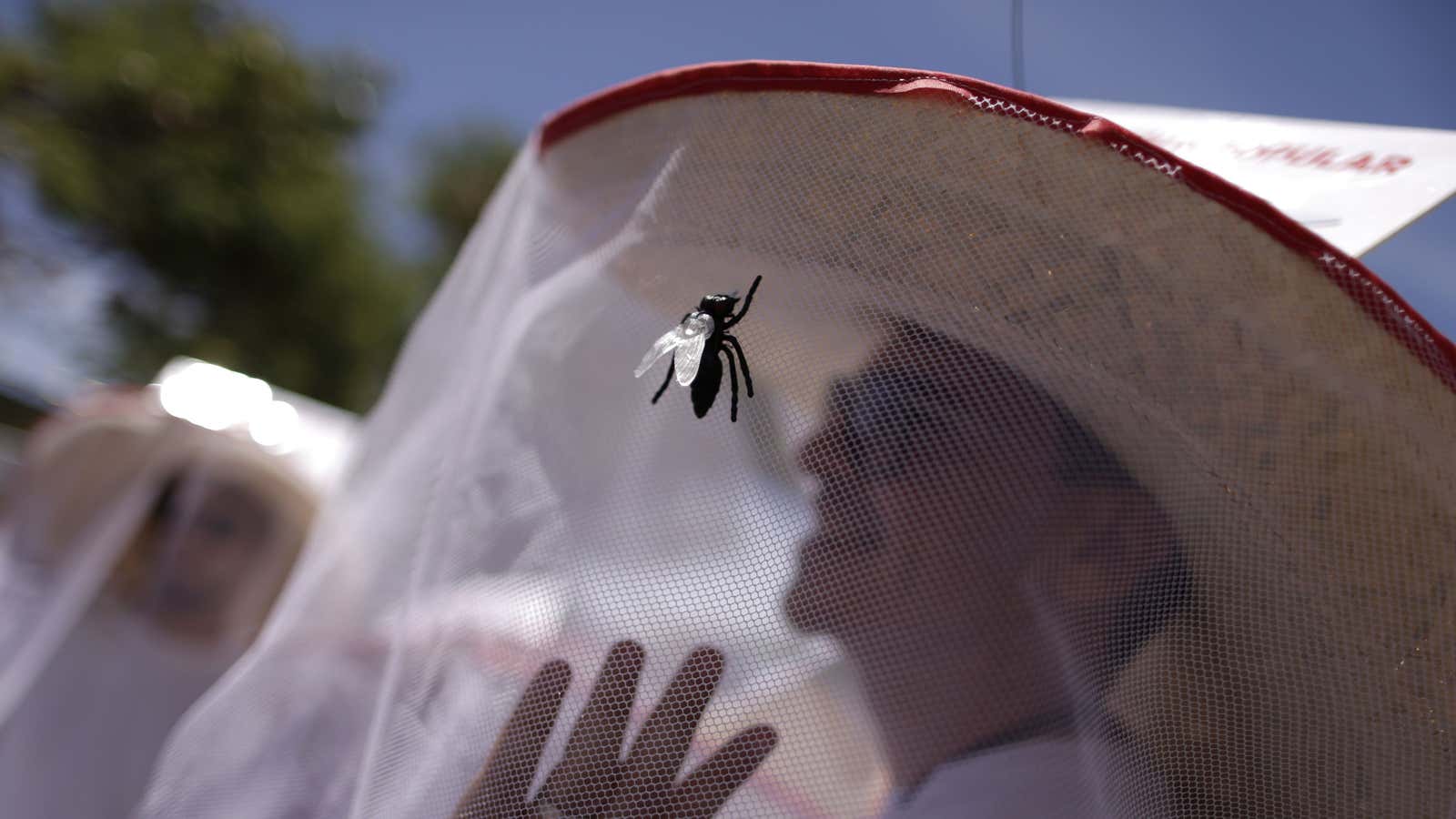By one estimate, mosquitoes are the single biggest killer of humans. Each year they infect more than 700 million people with a host of diseases from malaria to Zika. We’ve tried hard to rid ourselves of the buzzing monster, but with limited success. That could change, if a science fiction-like idea works out.
In a decade-long quest, a UK company called SEEK has developed a vaccine called AGS-v that it claims renders a person immune to all the diseases a mosquito can carry. Better still, it believes the vaccine could, in effect, weaponize a human. Every mosquito that bites a SEEK-vaccinated human would either die young or not be able to reproduce. The company is now launching a small human clinical trial of the vaccine, with the help of the US National Institutes of Health (NIH).
So far vaccines that combat a single mosquito-borne disease have not proven their effectiveness at the scale we need. The SEEK vaccine takes a different tack. Instead of choosing to inoculate a person against a particular disease, it creates an immune system that’s alert to mosquito saliva. This way, as soon a mosquito bites and deposits some of its saliva in a human, the immune system acts like it would to an allergy and kills off any disease-carrying microbes that enter with the bite.
A mosquito’s saliva is a cocktail of proteins. We don’t know what the function of each protein is, but, primarily, they let the insects drink a satisfying blood meal by modulating their prey’s pain signals and preventing blood clotting. Some disease-carrying pathogens inside a mosquito have found ways of using some of these proteins to their aid. For instance, a chikungunya-like virus is more dangerous when delivered along with mosquito saliva than on its own.
SEEK’s vaccine was created using four proteins commonly found in mosquitoes. In studies done on mice, rats, and dogs, the company found that, if already exposed to these proteins, the animals were much less likely to get the disease from an infected mosquito. Specifically, the vaccine worked against dengue, yellow fever, and malaria.
The results of animal studies are not public. But these preliminary tests proved viable enough to meet the NIH’s strict guidelines for starting a human clinical trial.
The clinical trial will involve 60 people, randomized to test for effect against a placebo. Past studies on mosquito-saliva vaccines have shown mixed results. If this one is successful, as Anthony Fauci, an NIH scientist puts it, the SEEK vaccine “would be a monumental public health advance.”
